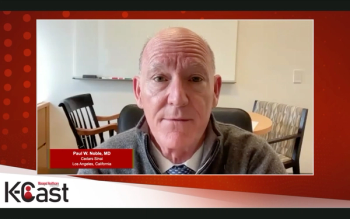
With Help of Sanofi, Dario Health Builds Scientific Case for Its Diabetes Program
Dario is using Sanofi’s research infrastructure to evaluate its digital health products.
The maker of a diabetes-focused digital health app has published new data showing its product can lead to clinically meaningful improvement in HbA1c for people with severe diabetes.
The data highlight the potential of digital health solutions, but it also shows that traditional pharmaceutical firms are wading into the digital health future.
Earlier this summer, Dario Health Corp.
Among users with a baseline HbA1c above 9 points, those who used Dario’s product had a 2.3-point reduction in HbA1c after six months, versus a 1.8-point reduction for non-users. The
Dario’s diabetes product is a smartphone application that links a blood glucose monitoring system with tracking, education, and support features. Those support features include pop-up notifications, but also interactive tools and access to human coaches.
Omar Manejwala, MD, the company’s chief medical officer, told Managed Healthcare Executive that engagement is the “key” to getting results. He said the company has examined various aspects of their program in order to understand which aspects have the greatest impact on patient outcomes.
“So we have more than a sense of how various pieces perform,” he said, “but the most important thing we have learned is that we get the best results when we are giving each person a personalized experience.”
The new study is part of a partnership between Dario and the multinational pharmaceutical firm Sanofi SA. The deal,
“For example, the latest Sanofi published studies include matching Dario users to claims, lab values, and EHR data to determine the actual outcomes of Dario members compared to matched controls,” he said. “This type of research is extremely difficult without access to [Sanofi’s] research infrastructure.”
The company hopes that the research generated through the partnership will make it easier to convince decision-makers at insurance companies, health systems, and large employers that they should offer Dario’s products to their members and/or employees.
“Member acquisition is multichannel,” Manejwala said, “but most members come to Dario as a result of being included in payer and employer benefits.”
However, unlike some of its competitors, Dario has opted to make it easy for patients to access their products. While many digital therapeutics are available on a prescription-only basis, Dario’s products do not require a prescription. And while some competitor products have price points that would make it difficult for many end-users to access without insurance coverage, Dario offers monthly membership plans for its members. For instance, their diabetes plans range from $20 to $70 per month, depending on the level and type of coaching provided.
Manejwala said the goal was to make Dario highly scalable, something many digital health firms have had difficulty accomplishing. Though he said payers and employers are the main driver of growth for the company, he anticipates some users will come to Dario as a result of reviews in app stores.
Manejwala said the Sanofi partnership works because both companies are aligned behind the belief that digital health products have great potential and that partnerships between Big Pharma and digital health companies could lead to better business and better healthcare outcomes. He said more data are forthcoming showing not just the clinical benefits of Dario’s products, but also the benefits in terms of cost-efficacy.
“Expect to see more of that in the coming months,” he said.
Newsletter
Get the latest industry news, event updates, and more from Managed healthcare Executive.























